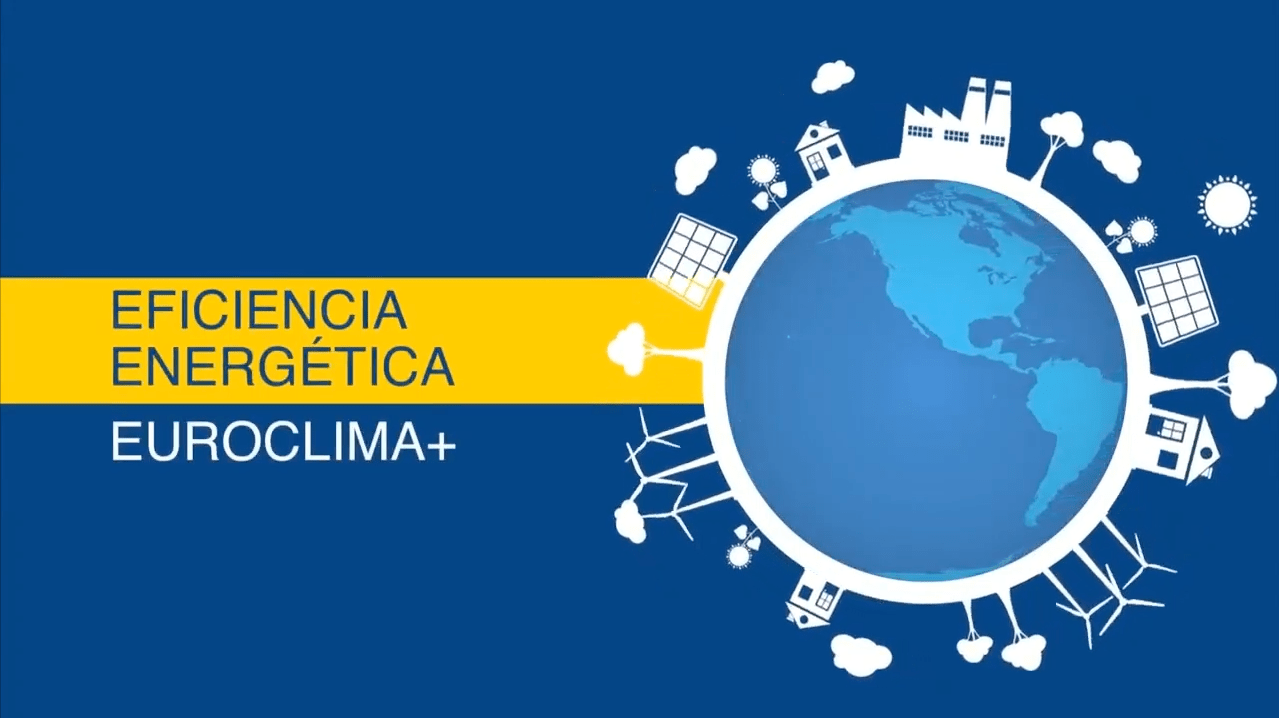The EUROCLIMA+ project "Mitigation of greenhouse gases and adaptation to the impacts of climate change in Latin America in strategic sectors of Argentina and Chile" is working to reduce greenhouse
gas emissions by strengthening energy efficiency measures.
Santiago, Chile, December 14, 2020. It is estimated that 80% of the world's energy consumption still comes from fossil fuels, a huge challenge for the sector in its efforts to reduce greenhouse gases and achieve more sustainable and environmentally-friendly production
Since the emergence of Homo sapiens from primates, their footprint on the planet has been linked to the use of energy. By leaving behind the ape walk to walking upright, humans climbed one of their first steps towards energy efficiency.
The use of fire for heating food and spaces, or the use of wind and water to grind wheat, represent incipient forms of structured energy use.
But it is not until the arrival of fossil fuels that there is a real acceleration in the productive activity of humanity - and its consequences for the planet-- "Without the application of energy on a larger scale and with greater possibilities, we would not have had the development we experienced in the last century", said Ignacio Santelices, Executive Director of the Agency for Energy Sustainability.
However, with the emergence and boom of solar energy we are looking at a new energy revolution that will allow for smarter and more sustainable development. According to the International Agency for Renewable Energy, solar energy has become "the new king of electricity generation".
Never before in history has energy been produced at such a low cost and this is revolutionising not only the way energy is produced, but also the way it is consumed - with greater efficiency and sustainability.
The population is changing from being a consumer to being a prosumer: it consumes and produces energy, which has had an impact on energy efficiency in recent years. Later on, it is expected that it will also be a manager since it will produce, consume and decide – based on storage - when to carry out each of these actions.
To reach this point, a cultural change must still take place. This change of perspective forces us to privilege investment with the highest return life cycle and not necessarily the cheapest in the short term - whose hidden operating costs end up making it more expensive in the end.
A specific project of the EUROCLIMA+ programme focuses its efforts in this direction: Mitigation of greenhouse gases and adaptation to the impacts of climate change in Latin America by strengthening energy efficiency in strategic sectors of Argentina and Chile.
"This EUROCLIMA+ initiative has six axes for energy efficiency related to decarbonisation, sustainability, job generation, economic development and innovation", Santileces explained.
Work is done with energy management systems, which implies the preparation of diagnoses to identify opportunities for improvement in the companies, the training of their collaborators and the implementation of intelligent monitoring, among other relevant measures for transport and public lighting. The initiative promotes a comprehensive and joint vision of the challenge of energy efficiency and sustainable development in the Southern Cone.
See the video of Ignacio Santelices, Executive Director of the Agency for Energy Sustainability.
About the sector Disaster risk reduction and management: droughts and floods
The objective of this sector is to contribute to the mitigation and adaptation of climate change through the implementation of energy efficiency measures, in accordance with the Nationally Determined Contributions (NDC) assumed by the countries under the framework of the Paris Agreement.
Actions financed under this sector seek support countries in their efforts to mitigate and adapt to climate change in the energy field. The projects are aimed at identifying and financing initiatives that help strengthen capacities, institutions, public policy regulatory frameworks and monitoring systems that promote energy efficiency.
About EUROCLIMA+
EUROCLIMA+ is a programme financed by the European Union to promote environmentally sustainable and climate-resilient development in 18 Latin American countries, particularly for the benefit of the most vulnerable populations. The Programme is implemented under the synergistic work of seven agencies: the Spanish Agency for International Development Cooperation (AECID), the French Development Agency (AFD), the Economic Commission for Latin America and the Caribbean (ECLAC), Expertise France (EF), the International and Ibero-American Foundation for Public Administration and Policy (FIIAPP), the German Society for International Cooperation (GIZ), and UN Environment.
Contacts
For more information about EUROCLIMA+, contact Alexandra Cortés: This email address is being protected from spambots. You need JavaScript enabled to view it. For information about the EUROCLIMA+ Energy Efficiency sector, write to This email address is being protected from spambots. You need JavaScript enabled to view it.

